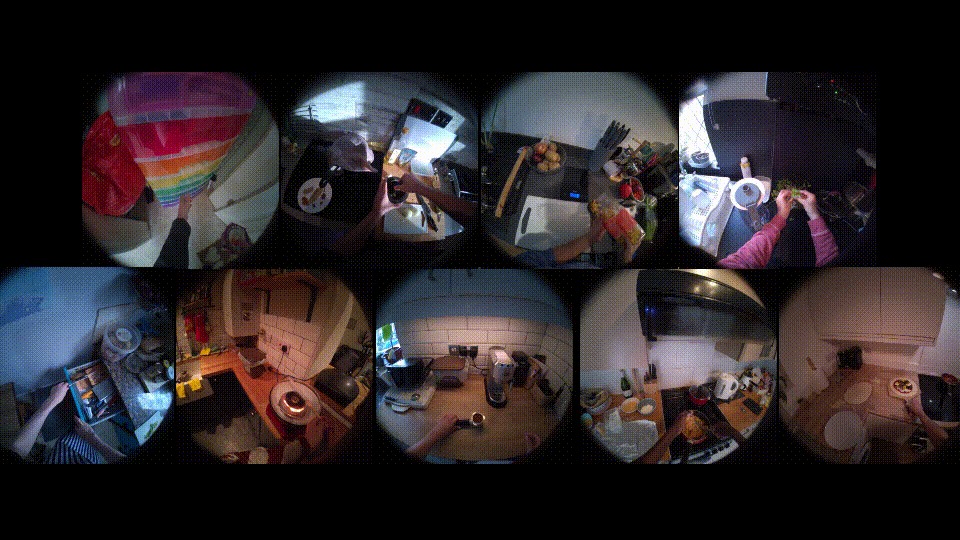New
Landing Page
We added a landing page to all available datasets allowing you to explore annotations and datasets available from our team. Interact with any of the cards to navigate to the corresponding dataset!
HD-EPIC
New
CVPR 2025
41 hours of unscripted multi-day recordings with highly detailed and interconnected ground-truth labels, grounded in 3D through digital twins of each scene.
41Hours
4.4MFrames
69Recipes
558Ingredients
59.4KActions
50.9KAudio Events
7.7MHand Masks
19.9KObj. Tracks
"How" & "Why" Descriptions
Recipe Prep & Step Pairs
Gaze Priming
Digital Twins
VQA Benchmark
7 Categories: Recipes, Ingredients, Nutrition, Fine-grained Actions, 3D Perception, Object Motion, and Gaze.
26.6K
Questions
